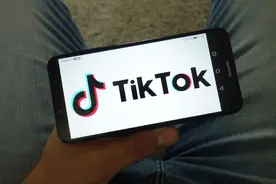Source: The U.S.government of Xinhuanet recently coerced ByteDance Company to sell TikTok's U.S.business to the U.S.company, pushing the bullying of abusing state power to extort power from high-tech enterprises to a situation that is "amazing" to the world.People of insight from many countries pointed out that the fact that the United States abused the excuse of "national security" to conduct "coercive transactions" and "forced transactions" is a serious damage to market principles and international rules, an extreme expansion of the American hegemonic mentality, and has set a very bad precedent in the international community.The vicious path of bullying "new heights", the US government and interest groups "hunting" TikTok is vivid: first concocting false evidence on the ground of "safety", then threatening and intimidating to issue a ban, and then introducing capital to profit from it, during which extreme pressure was applied both hard and soft, and even the lion was open to grab benefits...A series of operations regarded the basic rules of the market as nothing, which made enterprises in other countries feel insecure, The US market may be listed as a "political" minefield in the future.An article in the Australian Financial Review pointed out that the American move was "driven by politics and greed".The United States politicized commercial issues and "confused national security threats with personal political interests", which set a "precedent for unstable competitive environment" for other companies wishing to conduct business in the United States.The US's ugly "eating attitude" towards TikTok has also pushed the US's hegemonic means of coercing and suppressing other countries' industries and enterprises to a "new height" in order to maintain its economic and technological hegemony.In the 1980s, the United States used similar means to suppress the Japanese semiconductor industry represented by Toshiba; A few years ago, the United States took various measures such as "long arm jurisdiction" to "dismember" Alstom, a representative enterprise in the French manufacturing industry, which ultimately led to the acquisition of its main power business by its competitor, General Electric of the United States.In recent years, the US side's "red eye disease" has targeted Huawei, TikTok and other leading enterprises in the field of communication and Internet."Bandits", "extortions" and "robberies"...Many international public opinions and scholars have highly converged on the characterization of the US "hunting" of TikTok.Barry Diller, an American media tycoon, said frankly that the US side's response to TikTok was unreasonable from any perspective."Once we resort to protectionism and politicize the issue, it will inevitably hinder natural commercial activities".The United States has always advocated the principle of market economy and fair competition, but it can be seen from TikTok that the United States has only one standard to act - self-interest; There is only one way for the US to compete - to seize and seize.Seen from the various statements made by the US side, the wishful thinking is to let the US have control over TikTok in terms of equity, personnel and core technology.In essence, it is an "unequal treaty" that completely ignores the market rules and forcibly buys and sells.Brazil's Economic Value pointed out that the United States is putting its own interests above market principles.The Wall Street Journal also pointed out that the transaction promoted by the US government emits the smell of "nepotism", which will damage the credibility of the US government and its image of claiming to support free market rules.Even American netizens couldn't help laughing, "It's time to revise the western economic textbooks
-
Home
-
Product
SolutionsmanagementUnified management of multiple mobile phones and accounts
Marketing automationUse scripts instead of manual automation to run APP applications
Self-developed scriptJavascript can be used to develop all mobile terminal automation operations
SolutionsData monitoringMulti-dimensional monitoring account and peer online red data
analysis reportMulti-dimensional analysis report of data
-
About






Comment Cancel reply